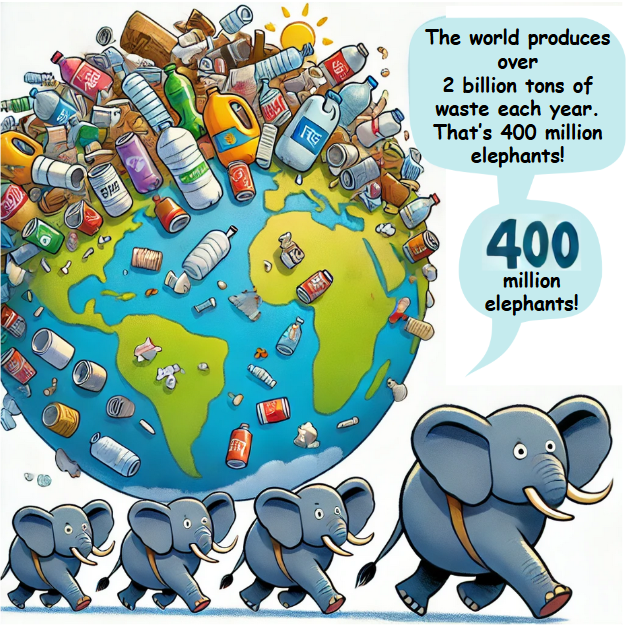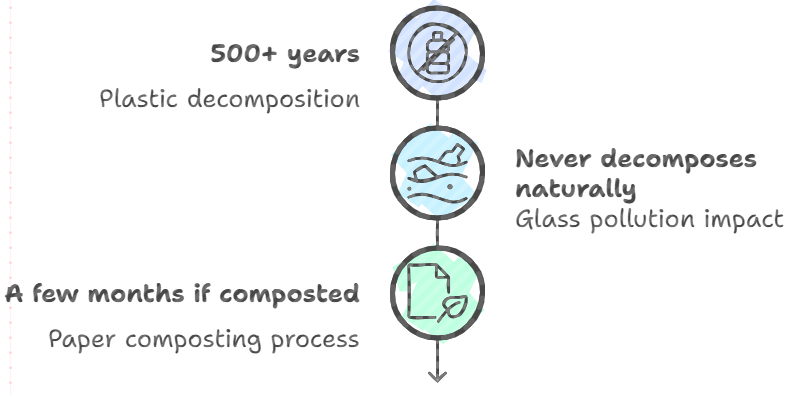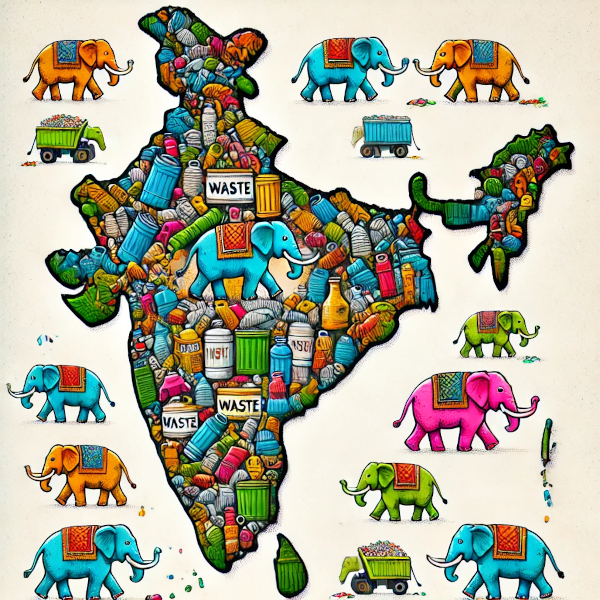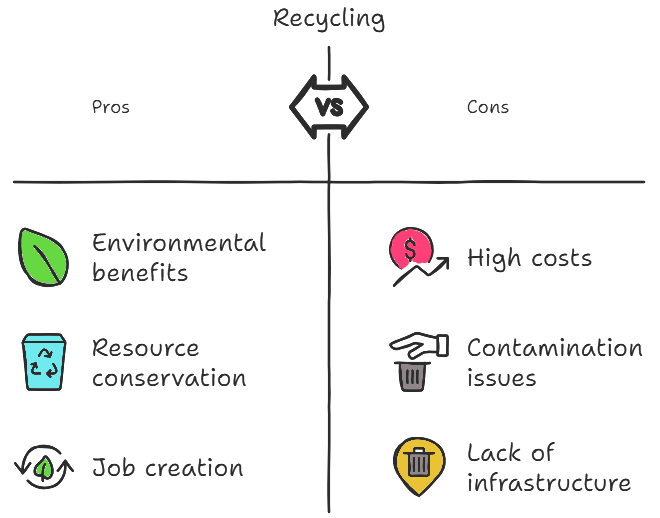6.9 Materials: Using and Reusing
backUnderstand /10
6.9.17 The Tale of Three Cups
What Really Happens to Our Trash?
 |
There are around 400,000 elephants on Earth. But every single year, humans produce enough waste to equal the weight of 400 million elephants. That’s 1,000 times more elephants than actually exist! |
| - | |
Recycling Rates:
|
 |
| - | |
 |
Decomposition rates:
|
| - | |
|
If Recycling is Good, Why Don’t We Do It?
|
|
|
We can’t save the Earth—she’s been here for billions of years and will continue to exist with or without us. But we can save ourselves by changing the way we live and cutting out unnecessary waste. Here’s how: |
|
| Reduce | Reuse | Recycle and Compost |
|
|
|
The best waste is the waste we never create.
| Just a reminder:
India generates approximately 62 million tonnes of waste annually. Waste in Elephant Terms: 12.4 million elephants. In Asia there are only around 40 000 elephants left. |
 |
Reduce: Create Less Waste
- How often do you bring reusable items (like bags or bottles) when you leave home?
- Think about the last three things you bought. Could you have avoided buying any of them?
- Do you check for excessive packaging when choosing products? How could you avoid it next time?
Reuse: Extend the Life of What You Have
- What’s the last item you threw away? Could it have been reused or repurposed?
- Do you donate items you no longer need? If not, what’s stopping you?
- What’s the most creative way you’ve repurposed something old?
Recycle and Compost: Manage What’s Left
- Do you sort your recyclables at home? If not, why?
- What’s one thing in your trash that could have been recycled or composted?
- Do you know your local recycling rules? If not, how can you find out?

